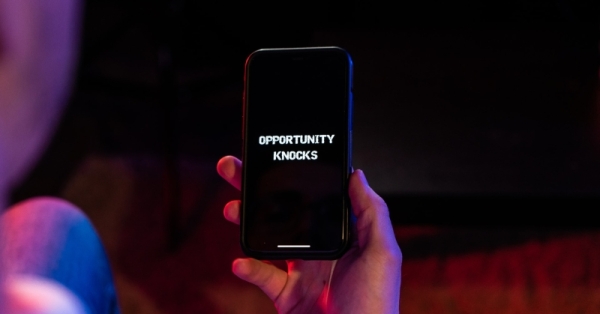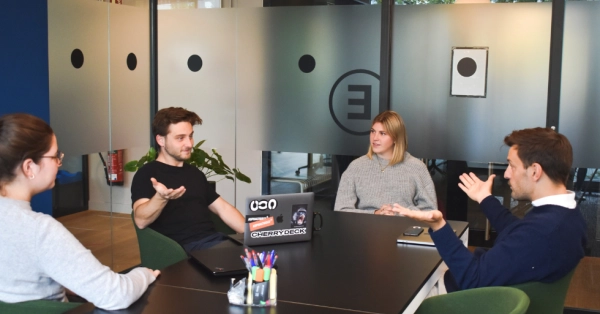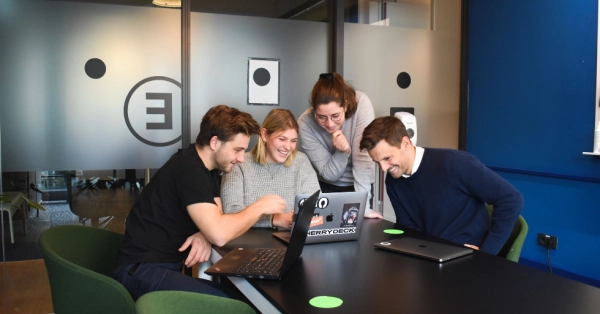You already know how important it is to have the right person in the right place. If you want to make sure that this happens in your team as well, pay attention to the interviews - if you structure and hold them correctly, they will help you make good choices.

There are few responsibilities an entrepreneur has that have as much impact as choosing the team. Well-prepared interviews are an important part of this endeavor.
Structuring the interview
HR professionals often use a STRUCTURED INTERVIEW. It strictly follows a set of questions to be able to gather similar information about all the candidates entering the interview. This clear structure will help you compare apples to apples when making the hiring decision.
My recommendation is to set a common set of criteria for all candidates -> draft a few questions for every criterion. We'll cover the manner in which you have to word the questions later on. That doesn't mean you can't customize the interview according to the candidate sitting in front of you.
-
Defining the competence we are looking for
Competences consist of knowledge - abilities - attitudes. They translate into behaviors that you see with the naked eye: what the candidate does - these behaviors can be explored in the interview.
It sets a uniform level for the whole team to be able to build the organizational culture. You can choose a series of knowledge - skills - attitudes that you want every member of the team to have. This will provide you with a common ground on which you can build your organizational culture.
The entrepreneur is a "curator" of the organizational culture, and at the beginning, every new colleague has a big impact on the culture of your startup.
-
Identify the knowledge - skills - attitudes specific to the role you are recruiting for
Relevance increases if we track behaviors that have been repeatedly displayed by the candidate in the past, and not just hypothetical behaviors they would or could display. In the latter case it is much easier for the candidate to give the answers that we want to hear.
What questions should you ask?
Behavioral questions start from the premise that past performance is the best predictor of future performance.
The Behavioral Interview gathers relevant information about the candidate's competencies by identifying how they acted in certain real situations in the past.
STAR method
In order to create behavioral questions, you can use a simple method – STAR:
-
SITUATION - "Give me an example of a situation where you worked on two projects at once."
-
TASK - "What were your responsibilities?"
-
ACTION - "How did you prioritize your tasks on the two projects?"
-
RESULT - "What results did you get?"
If you are unclear or in doubt about one of the points mentioned above, dig deeper - ask additional questions, ask for more details. For example: What were your responsibilities, how were they allocated in time and what role did your colleagues have in that task?
For every criterion you evaluate, you must have 2-3 questions with the STAR structure (Situation, Task, Action, Result). Sometimes candidates give superficial answers. Your role is to push to identify relevant examples.
Additional recommendations – what to do and what to avoid
-
Focus the interview on positive aspects of the candidate's experience. Give candidates an opportunity to talk about their achievements. You will create an open atmosphere where you can also discuss about the areas where the candidate needs to improve.
-
Make sure you get answers about the candidate's tasks, actions and results, not just about the team's. Look for answers that start with I, not just WE, because what you are interested in is the contribution of the candidate that is sitting in front of you. Don't settle for unclear answers to your questions. If the first questions are not answered clearly, insist to make sure that at the end of the interview you have covered all the competencies.
-
Don't put the candidate in a stressful situation. You must also pay attention to the employer brand. A candidate you put in uncomfortable situations will not have nice things to say about you.
-
If you are careful about how you structure the interview, what questions you ask, the do's and don'ts, then the interview should not cause you problems in recruiting the right person for your startup.














